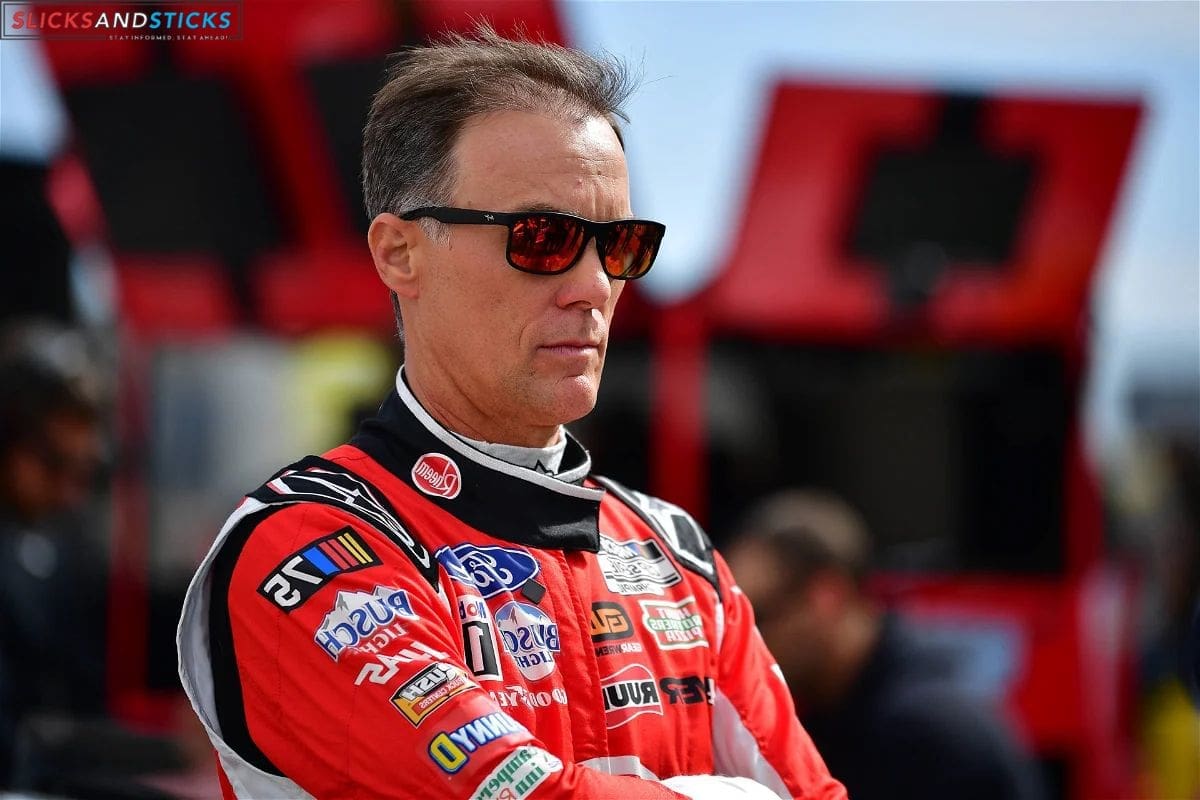Navigating NASCAR Horsepower: Engaging the sporting community and fans to align with the rules and regulations of a sport remains a challenging endeavor. NASCAR, particularly, generates diverse opinions regarding its rules and structure, creating a complex scenario for achieving consensus. While motorsport has evolved with numerous positive changes over time, the decision to enforce limitations on NASCAR car horsepower hasn’t resonated well with both fans and certain drivers.
Two-time Xfinity Series champion, Kevin Harvick, stands among those advocating for increased horsepower in the cars. A prevalent theory within the NASCAR community suggests that higher horsepower could enhance the excitement on shorter tracks, thereby fostering more competitive races. Augmented power would not only elevate speeds but also intensify the spectacle of qualifying sessions. Currently, NASCAR operates with two distinct horsepower packages: 510 HP for restrictor plate racing (Daytona and Talladega) and 670 HP for all other tracks. The restricted engine power poses a challenge for NASCAR in broadening its appeal, especially among enthusiasts of Formula 1 or Indycar racing.
While there’s a clamor for a horsepower boost, NASCAR confronts safety apprehensions, particularly on tracks like Daytona and Talladega. Even with horsepower limitations in place, concerns regarding driver and spectator safety loom large. Expressing his views on NASCAR car horsepower, Bob Fisher, Senior Vice President of the ECR Engines, shared on X:

“We desire maximum horsepower, and our engines are capable of producing well over 900 horsepower. However, increasing the power level, for instance, to 750 horsepower, wouldn’t significantly burden the engine manufacturers.”
Kevin Harvick, acknowledging this potential shift, responded with clapping emojis to a video post. Despite retiring from NASCAR, Harvick ventures into new avenues that maintain his connection with the sport.
After gracing NASCAR circuits for over two decades and competing at its pinnacle, Kevin Harvick bid farewell in 2023. This 60-time Cup race winner charts his post-retirement path as an analyst and expert on the Fox Sports broadcast booth.
Harvick, elucidating his transition to Fox Sports, stated, “I’ve experienced a lot in both [driving and broadcasting] and knew that was where I wanted to be because I enjoy discussing the sport. I relish storytelling and being part of the broadcast; it’s something I’ve cherished.”
Kevin Harvick remains deeply attached to NASCAR, the sport that has bestowed upon him immense opportunities. His forthcoming endeavor focuses on nurturing the sport beyond its existing boundaries, aiming to give back to the community that has been pivotal in his career.
Also read: NASCAR Horsepower Debate: Perspectives Clash Over Increased Power
Our Reader’s Queries
How much horsepower do NASCAR drivers have?
The latest Cup car is the seventh-generation model, boasting a fuel-injected V8 engine that packs a punch with 670 horsepower. However, for safety reasons, certain race tracks such as Daytona, Talladega, and Atlanta have reduced the horsepower output.
What are the horsepower restrictions in NASCAR?
The latest NASCAR engines, known as Next Gen, have been designed to be even less powerful than their predecessors. These engines are rated at 510 hp (380 kW) for restrictor plate racing, and 670 hp (500 kW) for all other tracks, including road courses, short tracks, and intermediate ovals. This reduction in power has been implemented to promote closer racing and more exciting competition on the track. With these new engines, drivers will need to rely more on their skills and strategy to come out on top.
Why did NASCAR reduce horsepower?
This weekend, NASCAR is set to take on the Texas Motor Speedway, which witnessed the last 200 mph qualifying lap in NASCAR history. In an effort to attract more manufacturers and cut costs, NASCAR decided to reduce horsepower. However, despite this move, no new manufacturers have joined the league since then, as noted by Daniel McFadin.
Do all nascars use the same engine?
Contrary to popular belief, NASCAR engines are not identical. Although NASCAR has stringent rules and guidelines for engine design and performance to ensure a level playing field, there are still variations between engines. These differences can be attributed to factors such as tuning, maintenance, and the skill level of the racing teams.
